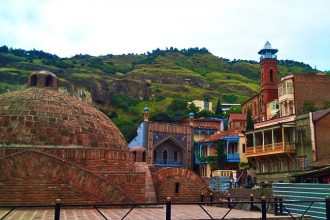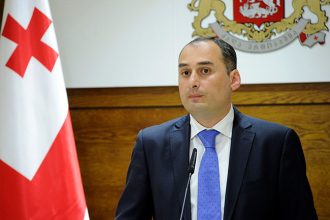
Food management for employees in Georgia
In the modern world for human resource specialists and CEOs’ one of the biggest deals is to create an appropriate environment for staff…
Read More
In the modern world for human resource specialists and CEOs’ one of the biggest deals is to create an appropriate environment for staff…
Read More
Despite that in the past art was mostly perceived much like a hobby, in modern world artists have real opportunities to follow their artistic…
Read MoreBUSINESS GEORGIA’s video “13 Facts about Georgia”, in 24 hours reached record views Promotional video “13 important facts about Georgia” created by BUSINESS…
Read More
Never mind workers — Yoshie Komuro suggests that if anyone stands to benefit from a sensible workday, it’s employers. “The number of Japanese people who work overtime, more…
Read More
A group of Hollywood film executives have been on an exploration visit to Georgia to study some of the country’s most impressive and picturesque locations…
Read More
Out on the fringes of Europe, the former Soviet Republic of Georgia is a country shrouded in mystery. Sandwiched between the Caucasus Mountains to…
Read More
Tbilisi is celebrating International Children’s Day today and hosting theatre shows, film screenings and fun activities for children at several inner-city public parks. Festivities…
Read More
The anti-dumping legislation was developed, however this law is not the only solution. Dimitri Kumsishvili, Economic and Sustainable Development Minister believes. He noted that,…
Read MoreDeputy Prime Minister Kumsishvili participated in the session of Berlin Economic Forum and spoke about transit and investment opportunities in the country. Dimitry Kumsishvili…
Read MoreTourism and Hospitality Forum within Welcome to Georgia! National Tourism Awards 2016 Co-organized with Georgian National Tourism Administration is held on 24 May, 2016 at…
Read More